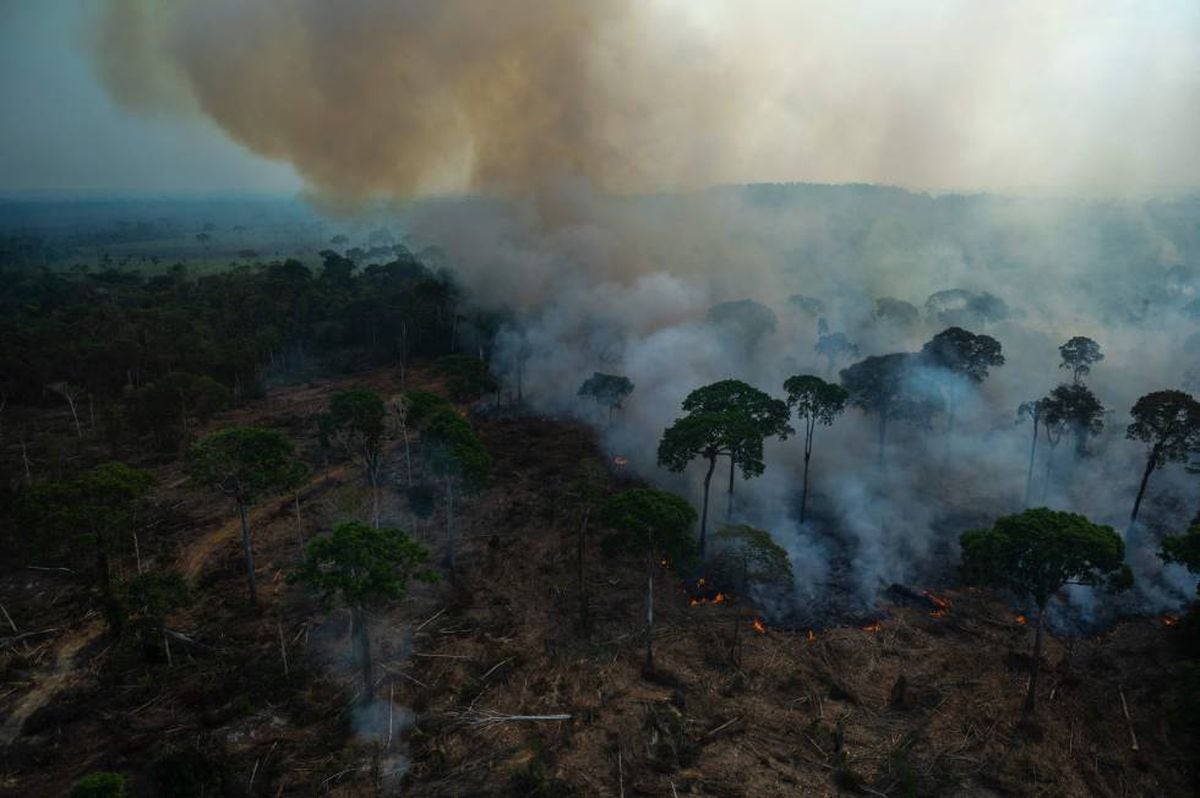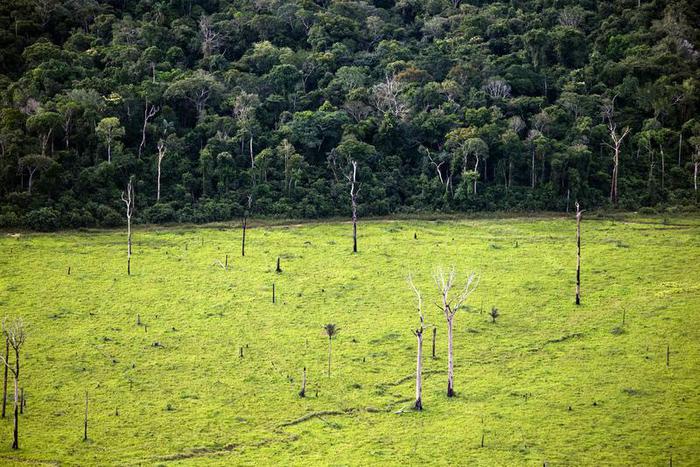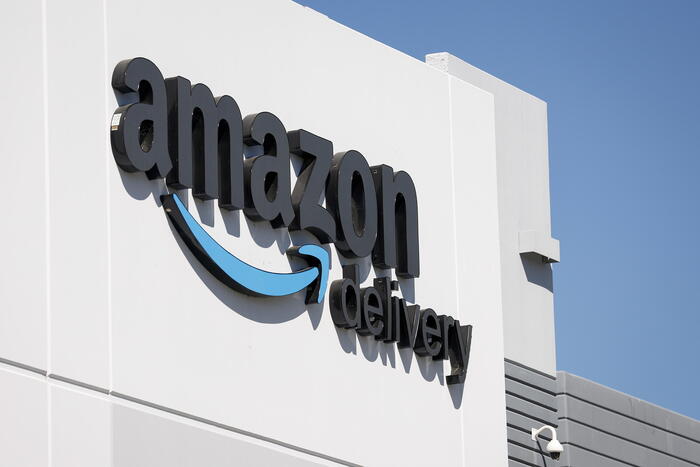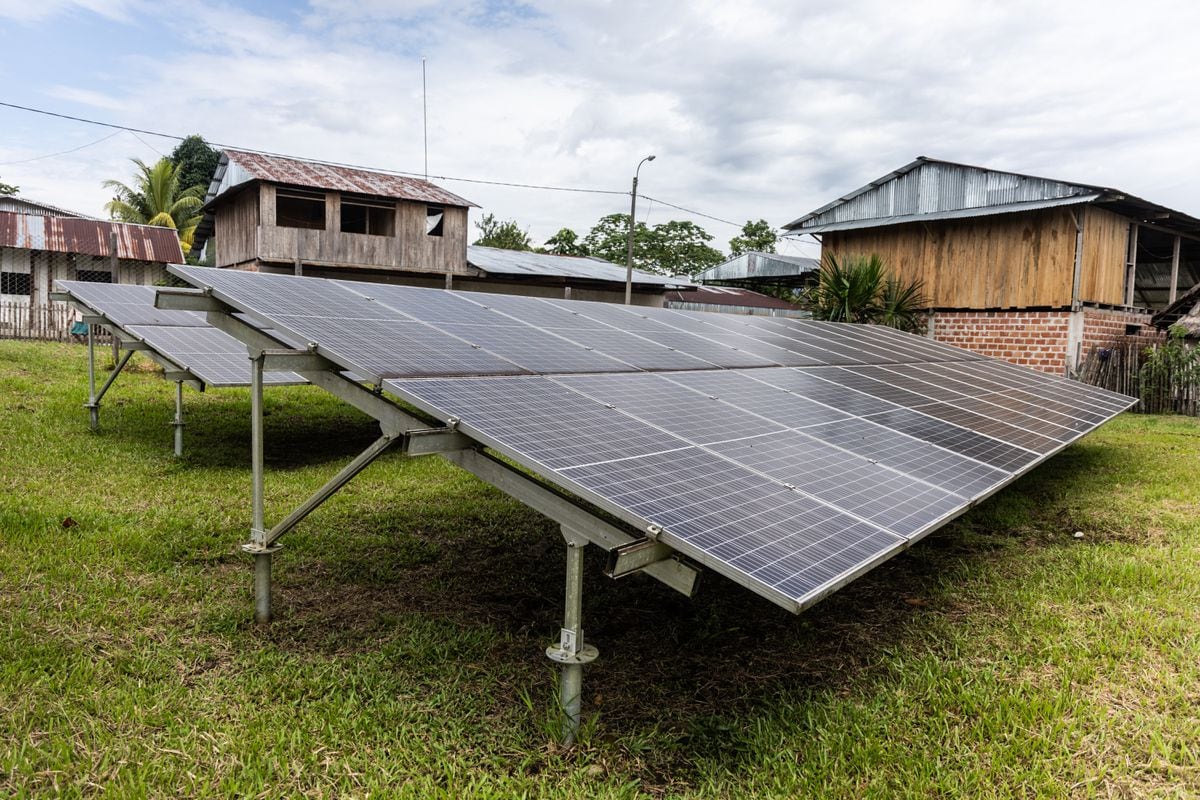Aerial view of the illegal burning of the Amazon, in BrazilAFP
The Amazon rainforest regulates the world's climate, is home to 25% of the terrestrial biodiversity known to humans and is essential for agriculture and energy in South America, and the best way to protect it is by increasing economic productivity. This is what the World Bank said in a new report published on Tuesday in which it makes recommendations such as carrying out federal and subnational reforms to eliminate "market distortions" that unfairly favor large farmers.
In April, President Luiz Inácio Lula da Silva announced that he would resume the policy of creating indigenous reserves that his predecessor stopped, demarcating six new lands for native peoples who can, if they wish, expel their invaders. Brazil's Amazon states are home to about 28 million people, more than a third of whom live in poverty, according to Tuesday's World Bank report.
The majority of the poor live in urban areas, although rural poverty is especially acute, says the Bank's statement, "there are considerable social deprivations in areas such as human capital and access to services. The Amazonian states have the highest proportion of indigenous population in Brazil, around 380,000 inhabitants, who often face worse living conditions."
"Higher productivity growth is needed in sectors that go beyond raw materials, both in the Amazonian states and throughout the country, in order to revitalize economic progress and reduce poverty, while moving away from the development model based on the extraction of natural resources," argues the WB. Productivity is an economic indicator that measures how many goods or services have been produced in a certain period of time and by each factor. For example, for each area of land, worker or capital invested.
The Bank estimates that the annual value of the Amazon rainforest alone amounts to $317 billion, in addition to providing many rural populations with a livelihood. The risk of reaching points of no return dramatically increases the cost of deforestation, the report warns. "It is urgent to protect the Amazon forests," he said. The tipping point of the forest is, according to scientists, the threshold at which the forest is so degraded that instead of absorbing Co000, as now, it would begin to emit it.
According to the Bank, current credit policies promote agriculture inefficiently due to both the fragmentation of the credit program and distortions arising from credit allocation, which in fact reduces productivity. The recommendation is to redirect subsidies and credit to smaller farmers.
In addition, the bank recommends performance-based conservation financing, conditional on measurable reductions in deforestation and that can leverage public and private resources. The multilateral ensures that there is a huge portion of Amazonian land, comparable to the combined size of Norway, Sweden and Finland, that does not have designation, so they should be reserved as conservation areas, indigenous lands, and lands eligible for regularization of tenure since non-designated areas have the highest rates of deforestation linked to land grabbing. In Brazil, non-designated lands are those over which the State has not decided what function it will grant them.
"With three out of four people already living in towns and cities in the Amazon, focusing on urban productivity is complementary to other efforts that increase incomes and protect the region's tropical forests. A Brazilian growth model focused on productivity across sectors will also benefit the Amazonian population and forests," said Marek Hanusch, World Bank Chief Economist and coordinator of the report, according to the statement.
Follow all the information of Economy and Business on Facebook and Twitter, or in our weekly newsletter








/cloudfront-eu-central-1.images.arcpublishing.com/prisa/2KVLLY26ZNGK3OCBRI676KYGKA.jpg)
